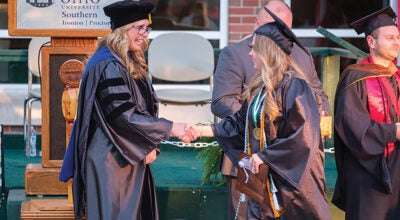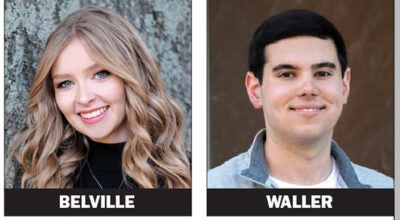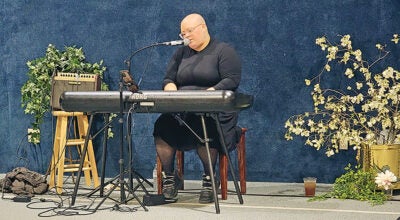Home Additions
Published 11:22 am Friday, November 21, 2008
It’s not that David Michael never enjoyed the community development work he was involved with in the Tri-State. But, as he likes to say, “there has always been a little something missing.”
That changed two years ago when Michael became the executive director and CEO of the Huntington Area Habitat for Humanity.
“I have found that missing component working for and with a Christian organization,” Michael said. “Habitat was founded on the Christian principles of serving others and that everyone deserves a safe, decent place to live.”
Now Michael, who for the past 12 years has called Chesapeake home, is looking to expand the house-building organization into the eastern part of Lawrence County. He is eyeing part of his home county from South Point to the Gallia County line, filling out the applications needed to get approval from the national headquarters.
“There is a huge need and a tremendous opportunity to get folks involved in the ministry,” he said. “We have a fairly extensive paperwork process to go through and they have to give their approval. We are probably 25 percent through. We are excited about the opportunity to provide Habitat houses in Lawrence County. We have to get all our ducks in a row. Probably six months away from getting that approval, I would think.
Since 1976,when Millard Fuller began Habitat, the non-profit, ecumenical Christian housing ministry has built approximately 300,000 houses internationally.
In Cabell County there have been 68 houses built since the organization started in February 1990. Typically, houses are built on donated vacant lots, though Habitat does have funds to clear structures from land.
“We have been very blessed in the last two years or so people have donated property and the city of Huntington has,” Michael said.
Right now there are five Cabell families who have gone through the application process and have been approved. Approval comes from meeting three basic criteria: needing better housing; meeting income guidelines; and agreeing to put in the required number of “sweat equity” hours.
Part of the Habitat philosophy is that the homeowners must put in at least 100 hours working on their own house, plus additional hours of “sweat equity.” For a single head of household the requirement is a total of 250; if there are two adults in a family that becomes 450 hours.
“In each of those instances, an individual or couple must spend 100 hours on their own house,” Michael said.
A common misconception about the non-profit that Michael has found is that Habitat houses are simply given to the homeowner.
“Our homeowners pay a mortgage just like you and me,” he said. “We have interest. They don’t. Our mortgage terms are zero percent interest and a 25-year mortgage.”
When Michael considers his latest career, he finds the satisfaction “more than I thought,” he said. “The satisfaction part is the continuation of helping family. Our catch phrase is to provide a hand up, not a hand out.”





